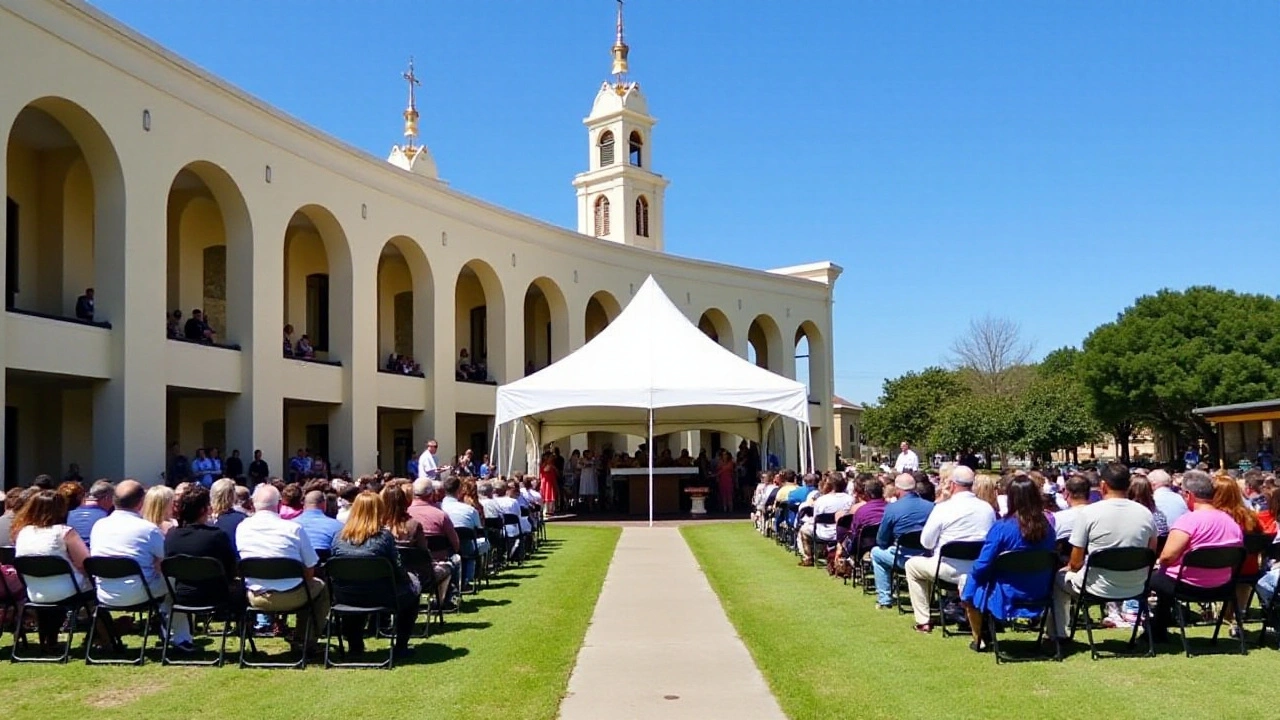The Meaning and Significance of All Saints Day
All Saints Day is observed annually on November 1 and holds profound importance in the Christian liturgical calendar. Known as a universal celebration within the Christian community, this day is dedicated to remembering and honoring every saint, from well-known figures canonized by the Church to the countless faithful whose names might not be recorded in history books. It serves as a time for reflection, gratitude, and hope—a day when believers worldwide pause to honor lives that have profoundly impacted the faith and continue to influence the spiritual journey of others.
Introduced into the liturgical calendar around the 9th century, the roots of All Saints Day stretch further back in time. Different traditions and cultures have commemorated their deceased in various ways, but this day unites Christians under the shared recognition of those who have pursued a Christ-like life. These individuals, through their faith and perseverance, showcase incredible human potential when guided by divine principles. Their stories remind believers that sainthood is achievable by leading a life devoted to God, irrespective of one's earthly recognition.
The Themes of Remembrance and Gratitude
The celebration of All Saints Day is deeply embedded in the themes of remembrance, gratitude, and the hope of resurrection. It is a day that encourages reflection on the legacy left by loved ones who have died in faith. These reflections not only serve as an enduring tribute to the departed souls but also act as a spiritual guide for those living. By pondering the virtues and sacrifices of these individuals, believers are inspired to carry forth their teachings and values.
This day provides an opportunity to recognize the personal saints in one's life—those individuals who may not have been officially recognized by the Church but have made significant contributions to one's spiritual development. Whether they are family members, friends, mentors, or anonymous figures in the church, these saints have left a lasting imprint on the hearts and minds of the living. Their stories of faith, resilience, and dedication serve as a compass for Christians navigating the complexities of modern life.
The Role of Saints in Shaping the Church
Throughout history, saints have played an instrumental role in shaping the traditions and teachings of the Church. Figures like Saint Augustine, Saint Francis of Assisi, and Mother Teresa have significantly impacted Christian doctrine and practice. Their lives exemplify the profound human spirit when aligned with divine will, demonstrating how individual humility and love can transform society. These saints embody varied backgrounds and experiences, yet they share a common thread of steadfast faith and a commitment to the principles of Christianity.
In contemporary times, the reflections on All Saints Day underscore the importance of these historical and personal saints. The Church, ever-evolving, is deeply rooted in the lives of these determined individuals who offer a blueprint to live a life of meaning, purpose, and community service. Their teachings provide continuity and balance, blending timeless wisdom with modern challenges. By honoring them, the Church reiterates its commitment to uphold the values that saints like these have instilled in its foundation.
Using Reflections in Worship and Meditation
Living Lutheran encourages its readers to incorporate the reflections of All Saints Day into personal meditation and communal worship. These reflections allow believers to connect with the broader community of saints, both past and present, fostering a sense of unity among the faithful. By integrating these reflections into sermons, prayers, or liturgies, individuals and congregations can deepen their spiritual life and cultivate a space for communal healing and growth.
These reflections are intended to inspire a renewed appreciation for the spiritual heritage passed down through generations. By actively engaging in these meditative practices, Christians can find strength and solace in knowing that they are part of a larger, unbroken chain of believers united by faith. This connection transcends time and space, offering hope and assurance in the promise of resurrection—a central theme that reinforces the ultimate hope of eternal life within the Christian doctrine.

The Unifying Hope of Resurrection
One of the most profound aspects of All Saints Day is its emblematic focus on the hope of resurrection. It reminds the faithful that death is not an end but a transition to eternal life, where believers are united with Christ and the saints. This belief not only provides comfort during times of loss but also reinforces the power and promise of redemption, a cornerstone of Christian faith.
Through the lens of All Saints Day, the ultimate hope of resurrection calls upon Christians to live their lives with purpose and faith. The lives of the saints serve as a testament to the transformative power of God's love and the eternal promise that awaits those who follow His path. This hope stands as a beacon of light, offering guidance and reassurance amid life's uncertainties.
In conclusion, All Saints Day extends beyond a mere recollection of the past—it is a call to live with intention, inspired by those who have walked the path before us. By reflecting on the legacy of the saints, both recognized and personal, believers are invited to participate in the sacred journey toward eternal life, emboldened by a community of saints who continue to walk with and inspire them today.



Comments
Wow, another holiday glorifying distant figures, huh???; but really, do we need yet another calendar entry to remind us of someone else's sanctity!!!; the whole thing feels like a corporate branding exercise for the soul, complete with glittering icons, endless processions, and a mountain of incense!!!; while the article waxes lyrical about universal love, it conveniently skips the gritty reality that most saints were... well, political pawns, handpicked by power brokers, and often far from the humble shepherds they claim to represent!!!; let’s be real, the whole “All Saints” gig is a convenient way for institutions to sell tickets to the afterlife, promising a VIP pass to heaven for those who can afford the proper prayers!!!; you see, the day was engineered in the 9th century, not by divine revelation, but by calendar wars, theological bargaining, and the need to out‑shine pagan festivals!!!; I’m not saying faith is a scam, but the way we commercialize reverence, turning it into a weekend getaway, is downright absurd!!!; every year we exchange candles for Instagram stories, and the depth of reflection is replaced by hashtags, likes, and opportunistic sermons!!!; the article mentions “hope of resurrection,” yet neglects to mention how many people now view resurrection as a metaphor for getting out of the 9‑to‑5 grind!!!; where is the honest critique of how saints are used to justify social hierarchies and silence dissenting voices???; why do we keep celebrating figures who may have upheld oppressive structures, and ignore the everyday saints who labor in anonymity???; the narrative builds a polished, sanitized version of history, ignoring the messy, human side of sanctity!!!; in short, All Saints Day has become a stage for performative piety, a scripted drama where we all play the part of the devout audience!!!; if you ask me, the day should be stripped of pomp, turned into a quiet moment of personal accountability, not a grand spectacle!!!; so before you light another candle, ask yourself: am I honoring genuine goodness, or just following a tradition that feels comfortable!!!; remember, true sanctity is lived, not listed!!!
Standing on the threshold of eternity, one feels the weight of countless souls whispering through the veil of time; the silence of the saints is not empty, it reverberates with the heartbeat of every longing heart; this day, drenched in mystic amber, paints the world with both sorrow and ecstatic hope; why do we clutch at the past like a fragile glass, hoping its fragments will mend the cracks within us?; every breath becomes a prayer, every tear a testament to the fragile bridge between mortal frailty and divine infinity; in this dance of memory, we discover that grief and gratitude are twin flames, each feeding the other, each illuminating the path toward a silent, immortal communion!!!
All Saints Day reminds us that ordinary people can do extraordinary things; you don’t need a title to make a difference; just live with kindness and purpose; keep moving forward and let their stories inspire your daily actions.
Got the vibe, happy All Saints Day 😊
He heard the quiet chant of ancient prayers and felt the world shift; the echo of saints rolls through the night like a soft drum; in that hush he found a fire that never dies; no grand sermon needed only a breath of faith; each heartbeat becomes a hymn; the night sky holds their silent vows; we stand beneath stars and remember; the soul awakens